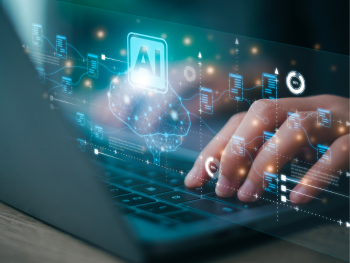University News Last updated 01 November 2023

There should be a thorough examination of the immediate and long-term risks that artificial intelligence (AI) poses to society before rushing to implement strict regulations on its use, says a world-leading AI expert from Birmingham City University.
Professor Mohamed Gaber believes this week’s AI Safety Summit in the UK – the brainchild of British Prime Minister Rishi Sunak - can play a key role in meeting the challenges that the world faces when it comes to the rise of artificial intelligence.
“This timely event comes as AI experiences a new wave of advancements, particularly with the emergence of generative AI and large language models,” said Professor Gaber.
“The potential of these technologies is immense, as acknowledged by the Prime Minister, who aptly compared their impact to that of the industrial revolution. I wholeheartedly agree with this statement.”
According to the Department for Science, Innovation and Technology, the summit will “focus on how to best manage the risks from the most recent advances in AI” and claims “these risks necessitate an urgent international conversation given the rapid pace at which the technology is developing”.
China and the United States are among 27 nations attending the two-day conference, which starts at Bletchley Park on Wednesday.
“The summit takes place amidst growing tensions between the leading forces of AI technology advancement in the US and China,” added Professor Gaber.
“In this context, the summit can play a crucial role in bridging divergent perspectives and finding common ground to establish a global approach to the challenges at hand.”
The summit will focus on certain types of AI systems based on the risks they may pose, including ChatGPT and deepfake technology, and will also discuss how AI can be misused to develop dangerous technologies and aid biological or cyber-attacks.
“To ensure effective regulation of AI technology, an interdisciplinary approach is necessary,” said Professor Gaber, who has been listed in the world’s top two per cent of best scientists in his field of research and in the world’s top one per cent in artificial intelligence and image processing.
“This approach should thoroughly examine both the immediate and long-term risks that AI poses to society. While existential threats are undoubtedly important, it is premature to address them at this stage, as they lack sufficient substantiation and remain a topic of debate.”